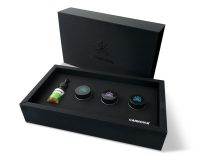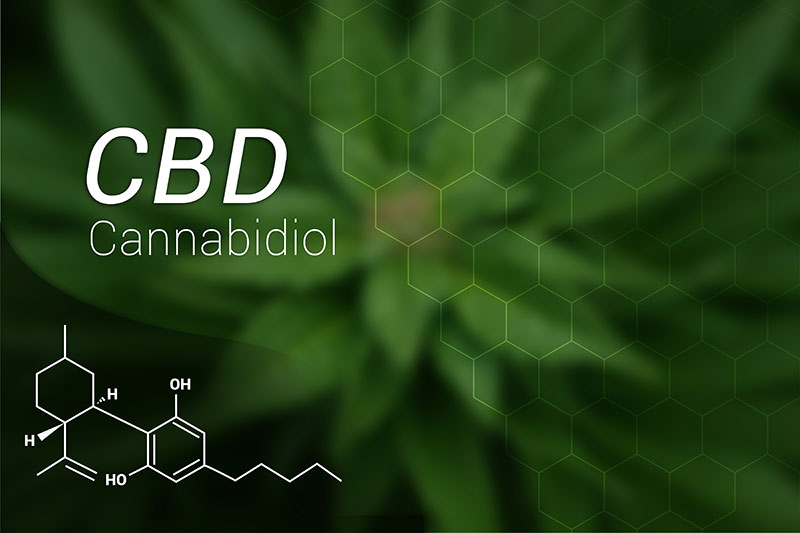by Kristen Brissette/editorial assistant
New York City’s Health Department has issued a ban that prohibits foodservice establishments from selling cannabidiol (CBD)-infused food and drinks, saying it is “responsible for promoting the safety of the food available to New Yorkers.”
These products have not been approved by the U.S. Food and Drug Administration (FDA), and selling food and beverages that contain CBD is illegal under federal law. CBD-infused nonfood products are legal in New York City; it only becomes illegal when added to food or beverages.
In a statement, the New York City Health Department said of the ban: “In December 2018, the Food and Drug Administration (FDA) issued a statement clarifying its position on cannabis-derived products. The FDA stated that it is unlawful to add CBD to food or drink. As a result, the health code also prohibits adding CBD to food or drink. The Health Department is currently educating foodservice establishments that CBD is prohibited from being added to food and drink and to stop offering these products. Beginning July 1, 2019, if operators have not voluntarily come into compliance, the health department will embargo food and drink products that contain CBD; the products will have to be returned to the supplier or discarded. Starting Oct. 1, 2019, the health department will begin issuing violations to foodservice establishments for offering food or drink containing CBD. Violations may be subject to fines as well as violation points that count toward the establishment’s letter grade.”
The health department says it has been informing businesses in New York City that may sell food and drink about this regulation to help them achieve compliance with the ban. All CBD-ingestible products should be off shelves by Oct. 1, as the health department noted. Any businesses not in compliance may face fines of $200-$650 starting on that date.
Ban causing confusion
Brian Baum, CEO of Cannovia, an online company selling hemp-derived CBD products, told The Griffin Report of the Northeast, said, “The ban may be well intentioned due to the complexity of growing and education of the consumer, but there is a lot of confusion out there.”
Baum’s background is in more traditional healthcare. For the last 10 years, he was involved in electronic health records, creating a method for consumers to authorize the use of their health information wherever they wanted. In the past year, he began to transition into the CBD space. He was excited about the possibilities.
“What is happening with CBD can do a lot of good for a lot of people,” said Baum.

Baum believes CBD has tremendous potential, but there is also a lot of potential for fraud and abuse. It is a complex product and complex crop. Much of the CBD is coming from China, and there are risks with that. The plant is a bio-accumulator, meaning hemp can be used to purify soil because it absorbs everything that is bad in soil, such as metals, pesticides and herbicides. That is why it is a difficult crop to transition into and testing is so important.
Cannovia grows hemp on farms in Colorado where the soil is tested three feet down to ensure it is safe to grow hemp. Cannovia also tests the water that is used for irrigation. Testing also is done to ensure the hemp is below the 0.3 percent THC legal requirement.
Also important to Cannovia is educating consumers on how to identify a quality product vs. an inferior one. It also seeks to educate consumers on what to expect when taking CBD and setting realistic expectations for results.

Information is available at Cannovia.com, and Baum also says he is impressed with the website ProjectCBD.org, the site of the nonprofit of the same name that offers top-notch information on the science of CBD.
Baum believes New York’s citywide ban is probably well intentioned because of the complexity of CBD, but much of the CBD is sold online, so the ban has virtually no impact on consumer consumption of CBD. More than anything, the ban cuts merchants and restaurants in the city out of the profits to be made.
According to Baum, a similar situation occurred in California. Right after the 2018 Farm Bill was passed and hemp-derived products were legalized, the California Department of Public Health mandated that no food infused with CBD could be sold in California. That currently is being resolved through legislation. In July, a House committee in California unanimously approved legislation that would legalize CBD as a dietary supplement. It is now going through the full House and Senate for approval. If California formally legalizes it, it would override the health department.
Baum feels that may be the path nationwide.
“As the FDA grapples what to do with this, Congress is under a lot of pressure from both consumers and farmers as well because this is a driver for legalizing hemp. It is a new cash crop for farmers. If you take CBD out of the equation, there is not a lot of cash in the crop,” he said.
Members of Congress are being pushed by their constituents, and they are leaning on the FDA to do something. Former FDA Commissioner Scott Gottlieb, before he resigned, made a statement that the easiest pathway is to pass legislation authorizing CBD to be a dietary supplement.
But Epidioloex, the first CBD-infused drug for the treatment of pediatric forms of epilepsy, was approved last year. And under the FDA guidelines, once it declares a substance a drug, it cannot at the same time be a dietary supplement.
The rise of ‘consumerized’ healthcare
CBD-infused products are popular. From Baum’s perspective from coming out of the healthcare industry, he saw the No. 1 trend in healthcare was a move to consumerism—the consumer is becoming much more active in proactively managing his or her health. That is taking many forms. In the Millennial generation, many do not have a primary care physician, so their view of medicine is totally different than generations before them. This has led many of them to look for alternatives to traditional medicine. CBD, an organic, farm-grown product that has been around for thousands of years, is being used for problems like stress, anxiety and pain.
Baum advocates intelligent regulation of CBD, such as labeling standards so people can clearly compare one product to another. If, for instance, a consumer searches for CBD oil on Amazon, a list of hundreds of different products will appear. Amazon does not allow the sale of CBD oil, so the products contain hemp-seed oil, which has zero CBD. Since Amazon is a trusted place, consumers assume they are buying CBD-infused products.
Cannovia, and other reputable CBD product makers, have their products tested by a lab.
“The Certificate of Analysis is done by a third-party lab that tests the CBD product and provides details on specifically what is in it. Cannovia has a certificate on all their products. Any reputable CBD source will have them. That is something that the city could have mandated and require those need to be available in the store for the products that they are selling. They shouldn’t try to pretend the market isn’t there; they need to try to help the market,” said Baum.
He added, “I think it is very possible there will be legislation at the federal level this fall. Whether or not it can be passed by October is probably unlikely in the current environment.”
Cannovia products are available online at Cannovia.com. Available currently is the therapy line, which includes ingestibles as well topical lotions, and Mynd Gum, an alternative way to consume CBD since chewing gum is fast absorbing. A skin care line will be available in the fall. The company currently is in discussions with several retailers to have Cannovia products available in stores.
The National Library of Medicine records the first therapeutic use of hemp in 400 A.D. Across that entire time, there has not been a reported overdose or death related to CBD.

